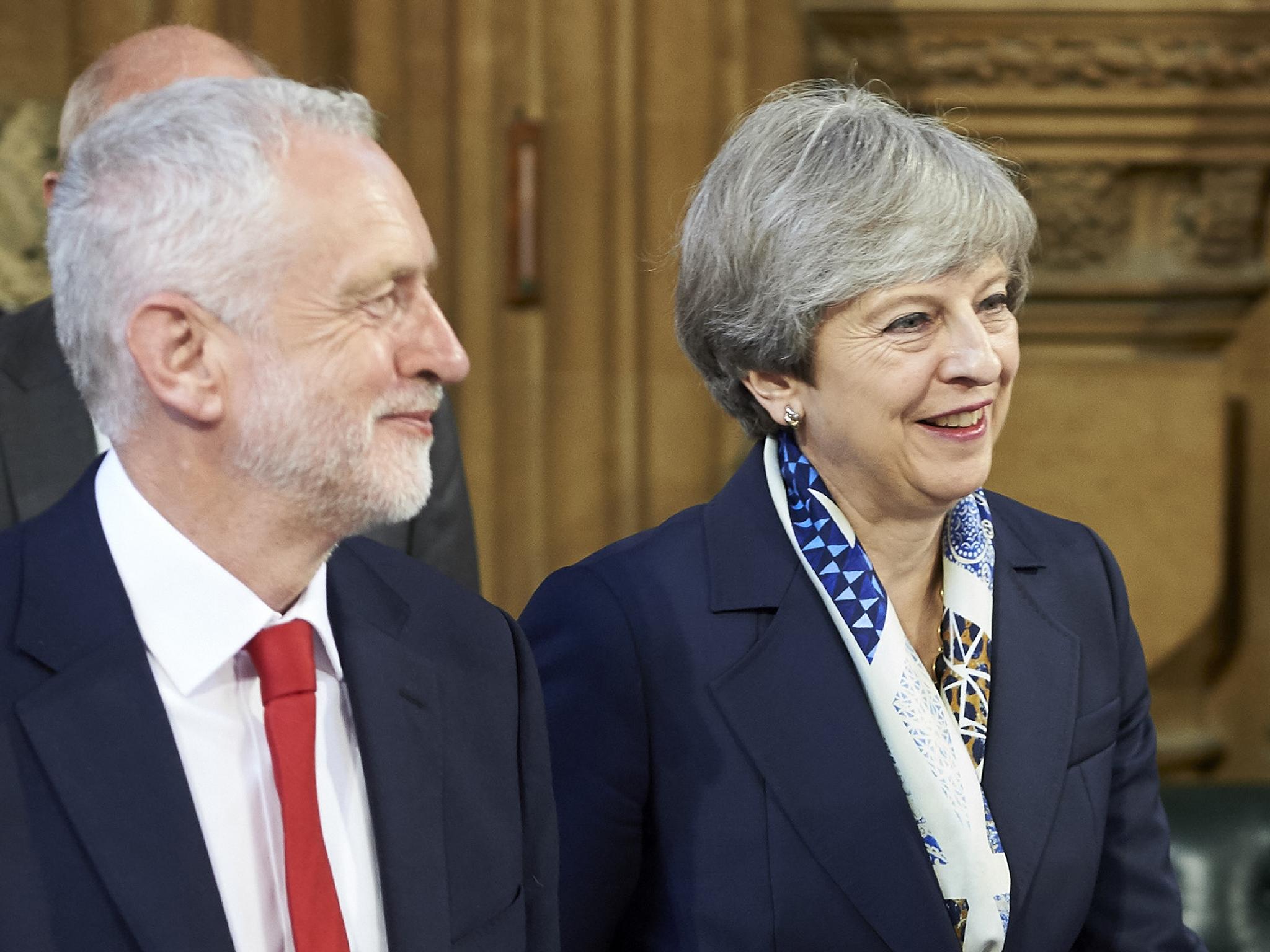Theresa May and Jeremy Corbyn are both backward-looking politicians – whatever happened to the future?
Nostalgia has become a striking feature of political debate: the Tories want to bring back hunting, Labour want to renationalise the railways and they both want to take us back out of Europe


Most people in Britain think life was better when they were growing up, according to a survey by Demos, the formerly Blairite think tank. Is that what Brexit is all about: turning the clock back to a sepia-tinted version of 1973?
I have written before about how Theresa May is a deliberately old-fashioned politician. She wanted to build a bridge back to a semi-mythical past. She wanted to bring back hunting, grammar schools and an “industrial strategy”.
None of the policies survived the 2017 election, but the interesting thing about that campaign was that it was a clash of rival nostalgias. Jeremy Corbyn is just as backward-looking a politician. His manifesto offered nationalised railways, free university education and a return to wider home ownership.
For all that Corbyn’s supporters claim that he offers to transform society, overthrow capitalism and usher in a true socialism that has never been tried because they don’t mention Venezuela any more, it was remarkable how much of his programme was bring-backery.
Bring back trade union rights; bring back 1970s levels of equality; bring back water, energy and the Royal Mail into public ownership.
Indeed, a surprising finding of the Demos poll was that Labour voters were more likely than Conservatives to be nostalgic: 70 per cent said life was better when they were growing up, compared with 59 per cent of Tories.
Even more surprising was that young people are more nostalgic than their elders: 71 per cent of those aged 25 to 34 said life was better when they were growing up, compared with 63 per cent overall. If we define “growing up” as ages five to 18, then for them the golden age was the Nineties and what Americans call the Aughts (2000-2010). And if it is nostalgia that they feel then many of them are nostalgic for things – such as British Rail – they never knew.
This is not how things used to work. For those of us nostalgic for the ancient verities of centrist politics, the one thing parties and leaders had to do was to “own the future”. A politician who was stuck in the past was a loser and the winner would be the one with the best plan to take advantage of the opportunities of the future.
That is why “forward” is the word that features so often in manifesto titles. It even featured in the Conservative offering last year (“Forward, Together” in case you have forgotten). No party would put “backward” in its slogans. The closest we get it is “keep things the same”, or “conservative”, in one of the parties’ names. Demos found, in focus groups conducted as part of its research, that people disliked being called nostalgic and thought it was pejorative.
But this swing to looking back is a dramatic change. From the dominance of Tony Blair and David Cameron, the modernisers, to May and Corbyn. With the election of Corbyn as leader and then the Brexit vote, both main parties have reversed the 2005 Labour manifesto title, “Forward Not Back”.
Naturally, it is more complicated than that. Public opinion is mixed and inconsistent. The degree of nostalgia depends on how you ask the question. Pew Research put the nostalgics in a minority last year, with 41 per cent saying life was better than 50 years ago (1967), and 35 per cent saying worse, “for people like me”.
Demos’s wording, about whether life was better “when you were growing up”, may have confused things with an element of “Did you have a happy childhood?”
And it is worth remembering that when Blair started to catch the public’s eye what was different about him was his social conservatism. “Tough on crime, tough on the causes of crime.” He stood out in the Labour Party because he talked about strong families.
Even towards the end of his time as prime minister he was so keen to get foreign criminals out of the country he was prepared to lose his ally Charles Clarke as home secretary over it. I remember a taxi-driver style rant at one of his monthly news conferences (another thing to be nostalgic about) in 2005 when he complained about people abusing the justice system and “half of them get off at the end of it – I think it is just ridiculous”.
Overall, though, he was impatient to change things and dismissive of how things were done in the past as a model for the future. He was such a moderniser that he forced the Conservatives to accept his changes and to offer to go further.
Then the pendulum swung, and now we have two parties competing to offer different versions of the 1970s. That is why there is such a huge hole in British politics. It is not just that both main parties have accepted Brexit, but that they are both offering it as part of a better yesterday.
The pendulum will swing again, and then we shall see which leaders can “own the future” again.
Survey fieldwork conducted by Sky Data on behalf of Demos. Nationally representative sample of 1,056 Sky customers, weighted to match the profile of the population. Respondents interviewed online 30 April to 8 May 2017
Join our commenting forum
Join thought-provoking conversations, follow other Independent readers and see their replies
Comments
Bookmark popover
Removed from bookmarks